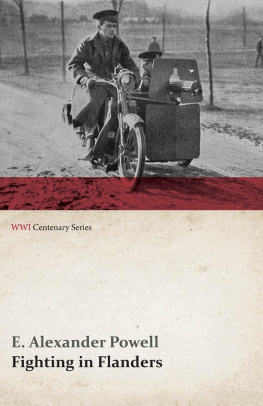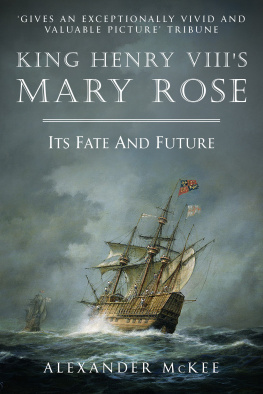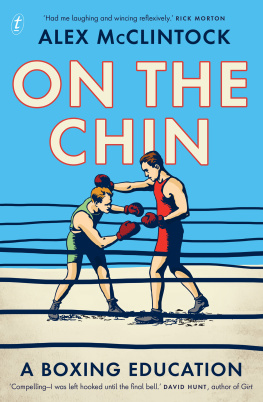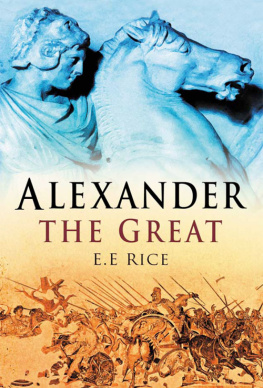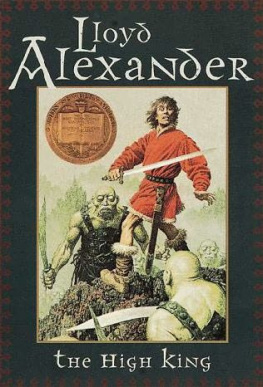This edition is published by PICKLE PARTNERS PUBLISHING www.picklepartnerspublishing.com
To join our mailing list for new titles or for issues with our books
Or on Facebook
Text originally published in 1919 under the same title.
Pickle Partners Publishing 2013, all rights reserved. No part of this publication may be reproduced, stored in a retrieval system or transmitted by any means, electrical, mechanical or otherwise without the written permission of the copyright holder.
Publishers Note
Although in most cases we have retained the Authors original spelling and grammar to authentically reproduce the work of the Author and the original intent of such material, some additional notes and clarifications have been added for the modern readers benefit.
We have also made every effort to include all maps and illustrations of the original edition the limitations of formatting do not allow of including larger maps, we will upload as many of these maps as possible.
BEST O LUCK
HOW A FIGHTING CANADIAN WON THE THANKS OF BRITAINS KING
BY
ALEXANDER McCLINTOCK, D. C. M.
Late Sergeant, 87th Battalion, Canadian Grenadier Guards
Now member of U.S.A. Reserve Corps
CHAPTER I TRAINING FOR THE WAR
I dont lay claim to being much of a writer, and up till now I never felt the call to write anything about my experiences with the Canadian troops in Belgium and France, because I realized that a great many other men had seen quite as much as I, and could beat me telling about it. Of course, I believed that my experience was worth relating, and I thought that the matter published in the newspapers by professional writers sort of missed the essentials and lacked the spirit of the ditches in a good many ways despite its excellent literary style, but I didnt see any reason why it was up to me to make an effort as a war historian, until now.
Now, there is a reason, as I look at it.
I believe I can show the two or three millions of my fellow countrymen who will be out there before this war is over what they are going to be up against, and what they ought to prepare for, personally and individually.
That is as far as I am going to go in the way of excuse, explanation, or comment. The rest of my story is a simple relation of facts and occurrences in the order in which they came to my notice and happened to me. It may start off a little slowly and jerkily, just as we didnot knowing what was coming to us. Id like to add that it got quite hot enough to suit me laterseveral times. Therefore, as my effort is going to be to carry you right along with me in this account of my experiences, dont be impatient if nothing very important seems to happen at first. I felt a little ennui myself at the beginning. But that was certainly one thing that didnt annoy me later.
In the latter part of October, 1915, I decided that the United States ought to be fighting along with England and France on account of the way Belgium had been treated, if for no other reason. As there seemed to be a considerable division of opinion on this point among the people at home, I came to the conclusion that any man who was free, white, and twenty-one and felt as I did, ought to go over and get into it single-handed on the side where his convictions led him, if there wasnt some particular reason why he couldnt. Therefore, I said good-by to my parents and friends in Lexington, and started for New York with the idea of sailing for France, and joining the Foreign Legion of the French Army.
A couple of nights after I got to New York I fell into conversation in the Knickerbocker bar with a chap who was in the reinforcement company of Princess Pats regiment of the Canadian forces. After my talk with him, I decided to go up to Canada and look things over. I arrived at the Windsor Hotel, in Montreal, at eight oclock in the morning, a couple of days later, and at ten oclock the same morning I was sworn in as a private in the Canadian Grenadier Guards, Eighty-seventh Overseas Battalion, Lieut.-Col. F. S. Meighen, Commanding.
They were just getting under way making soldiers out of the troops I enlisted with, and discipline was quite lax. They at once gave me a weeks leave to come down to New York, and settle up some personal affairs, and I overstayed it five days. All that my company commander said to me when I got back was that I seemed to have picked up Canadian habits very quickly. At a review one day in our training camp, I heard a Major say:
Boys, for Gods sake dont call me Harry or spit in the ranks. Here comes the General!
We found out eventually that there was a reason for the slackness of discipline. The trouble was that men would enlist to get $1.10 a day without working for it, and would desert as soon as any one made it unpleasant for them. Our officers knew what they were about. Conditions changed instantly we went on ship-board. Discipline tightened up on us like a tie-rope on a colt.
We trained in a sort of casual, easy way in Canada from November 4th to the following April. We had a good deal of trouble keeping our battalion up to strength, and I was sent out several times with other non-corns on a recruiting detail.
Aside from desertions, there were reasons why we couldnt keep our quota. The weeding out of the physically unfit brought surprising and extensive results. Men who appeared at first amply able to stand the game were unable to keep up when the screw was turned. Then, also, our regiment stuck to a high physical standard. Every man must be five feet ten, or over. Many of our candidates failed on the perpendicular requirement only. However, we were not confined to the ordinary rule in Canada, that recruits must come from the home military district of the battalion. We were permitted to recruit throughout the Dominion, and thus we gathered quite a cosmopolitan crowd. The only other unit given this privilege of Dominion-wide recruiting was the P. P. C. L. I. (Princess, Patricias Canadian Light Infantry), the first regiment to go overseas from Canada, composed largely of veterans of the South African and other colonial wars. We felt a certain emulation about this veteran business and voiced it in our recruiting appeals. We assured our prospective rookies that we were just as first-class as any of them. On most of our recruiting trips we took a certain corporal with us who had seen service in France with a Montreal regiment and had been invalided home. He was our star speaker. He would mount a box or other improvised stand and describe in his simple, soldierly way the splendid achievements of the comrades who had gone over ahead of us, and the opportunities for glory and distinction awaiting any brave man who joined with us. When he described his experiences there was a note of compelling eloquence and patriotic fervor in his remarks which sometimes aroused the greatest enthusiasm. Often he was cheered as a hero and carried on mens shoulders from the stand, while recruits came forward in flocks and women weepingly bade them go on and do their duty. I learned, afterwards that this corporal had been a cook, had never been within twenty miles of the front line, and had been invalided home for varicocele veins. He served us well; but there was a man who was misplaced, in vocation and geography. He should have been in politics in Kentucky.





